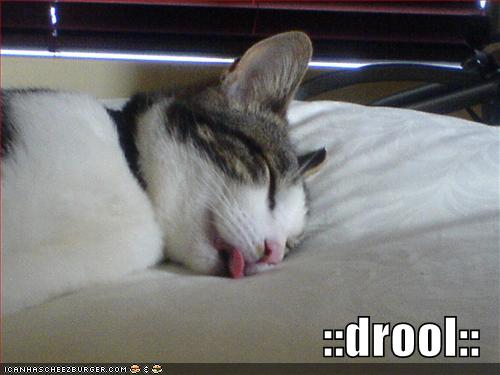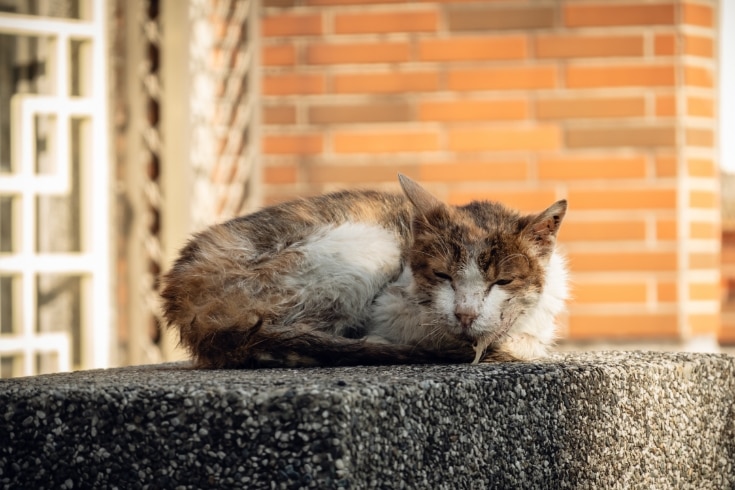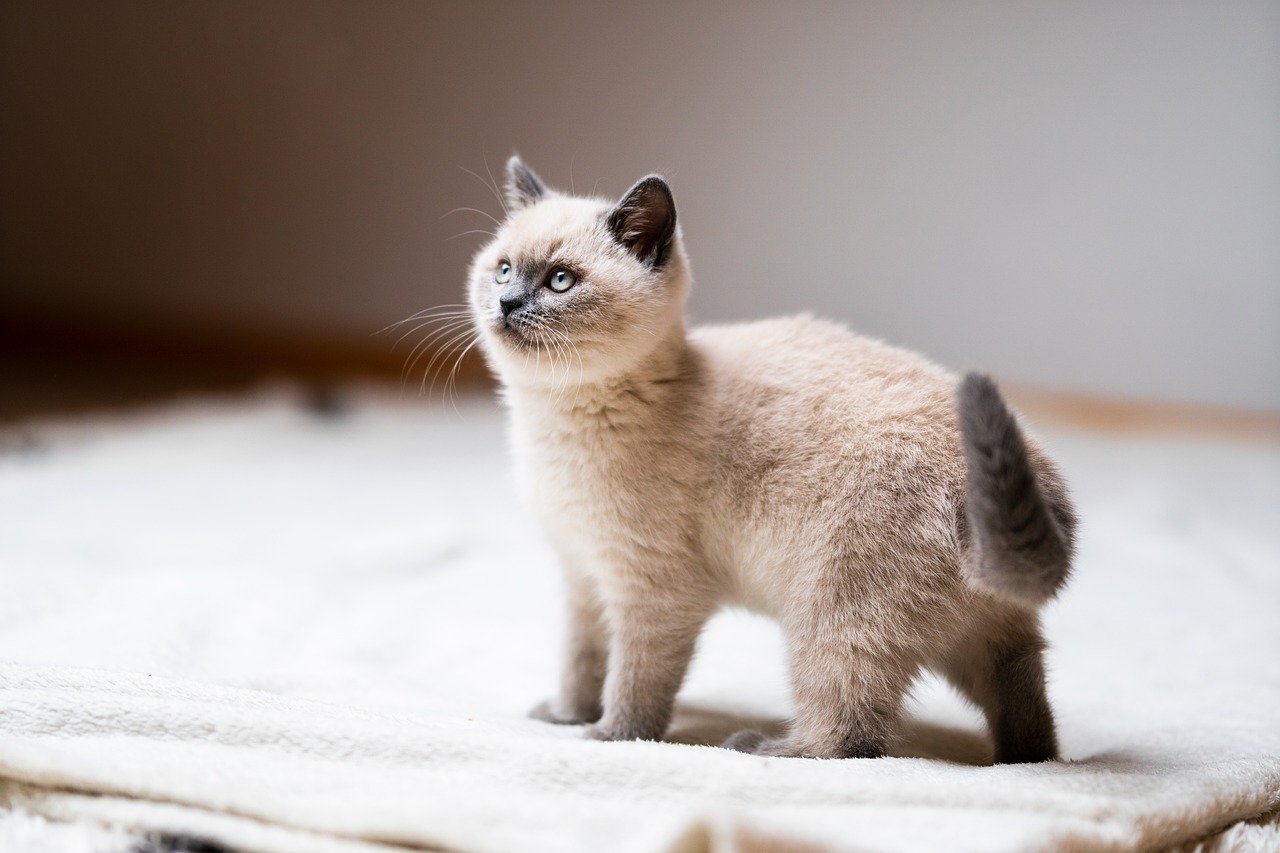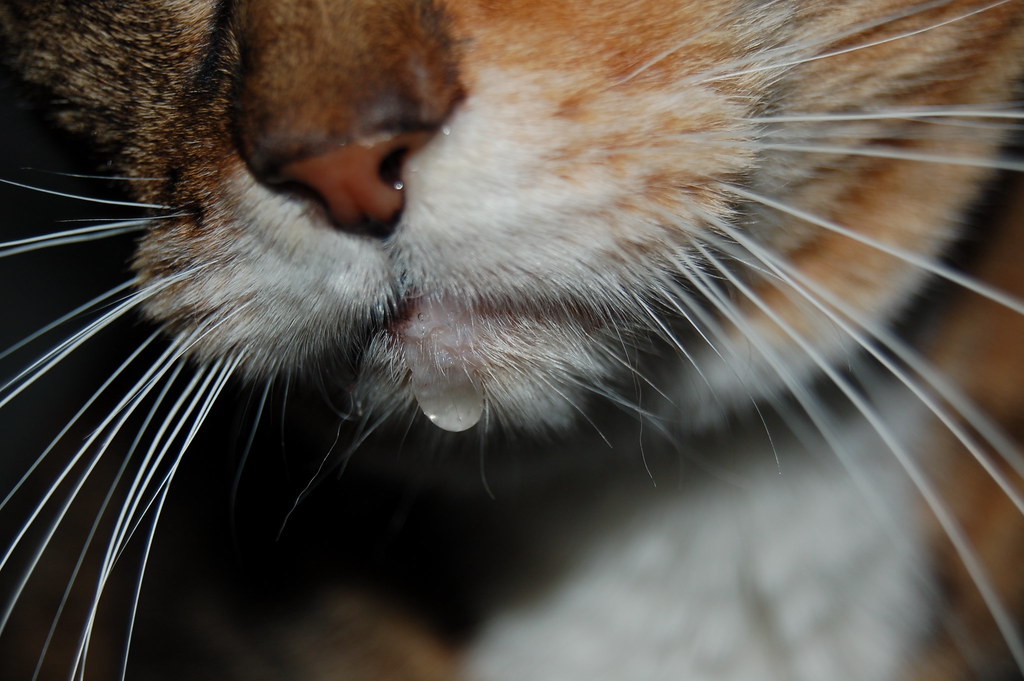Causes of cat drooling
Cat Drooling – Causes, Behaviors, and FAQs explains why understanding the causes of cat drooling is really important. Knowing why your cat drools can help you keep her healthy and content.
Drooling in cats can be caused by many things. Some are simple, like excitement or feeling happy. Other causes can be more serious and might need a vet’s attention. Let’s check out some common reasons for cat drooling.
Excitement or Contentment
Cats may drool when they’re very relaxed or happy. Have you ever noticed your cat drooling when she’s sitting on your lap, purring? This is often because she feels safe and loved. It’s like your cat’s way of saying, “I’m enjoying this!”
Nausea or Upset Stomach
If your cat has an upset stomach or feels nauseous, she might drool more than usual. This could be due to something she ate or another health issue. Always consult your vet if you suspect this might be the case.
Dental Issues
Cats with dental problems often drool a lot. Issues like tooth damage, infections, or gum disease can make your cat’s mouth sore and cause her to drool. Regular dental check-ups can help keep your cat’s teeth in good shape and reduce drooling.
Foreign Object
Sometimes a cat might get a piece of string, grass, or even parts of toys stuck in her mouth. This can make her drool excessively. If you see something like this, avoid pulling it out yourself. Instead, take your cat to the vet for a safe removal.
Toxic Substances
Has your cat been chewing on something poisonous? Cats might eat things they shouldn’t, like certain plants, foods, or chemicals. If your cat starts drooling and you think she’s ingested something toxic, get her to the vet immediately.
Respiratory Infections
Upper respiratory issues like throat or sinus infections can cause a cat to drool. These infections are more common in cats recently adopted from shelters or those who have been around many other cats. If your cat shows signs of infection, visit the vet for treatment.
Heatstroke or Overheating
Overheating can cause a cat to drool. Cats are pretty bad at cooling themselves down. They can’t sweat like humans. Heatstroke is dangerous and needs immediate attention. If you think your cat is overheating, bring her to a cooler place and offer water. If she continues to drool, see a vet.
Oral Injuries
Cats with injuries in their mouth or jaw might drool a lot due to pain. Whether from a fight, an accident, or trauma, these injuries should be checked by a vet. Removing the cause of pain can almost instantly stop the drooling.
Nervousness or Anxiety
Stress or anxiety can also make a cat drool. Car rides, fireworks, or trips to the vet can all make your cat nervous and cause drooling. Once the stressful event is over, the drooling usually stops too.
Neurological Issues
Sometimes, neurological problems can affect a cat’s ability to swallow properly, leading to drooling. If your cat is drooling and has other symptoms like balance issues or difficulty eating, you should visit the vet to rule out neurological issues.
Want to learn more about cat drooling? Check out the full article here for insights and tips on how to keep your kitty happy and healthy.
Identifying symptoms and behaviors

Identifying symptoms and behaviors of cat drooling is important to understand if the drooling is a normal part of your cat’s day or a sign that something is wrong. Here are some common symptoms and behaviors to watch out for:
Signs of Normal Drooling
Normal drooling is often linked with a feeling of happiness or excitement. If your cat drools when purring, kneading, or lying contentedly on your lap, it’s usually nothing to worry about. Some cats even have a habitual slight drool when they sleep. This kind of drooling doesn’t usually last long and happens in specific, comfortable situations.
Symptoms of Concerning Drooling
Drooling becomes a concern if it is accompanied by other symptoms or happens in situations not related to relaxation. Here are a few symptoms to look out for:
- Frequent Drooling: If your cat is drooling frequently or all the time, it could indicate a problem.
- Behavior Changes: Watch for signs like increased irritability, lethargy, or withdrawal. If your cat seems out of sorts, combined with excessive drooling, a trip to the vet is necessary.
- Bad Breath: Strong or foul-smelling breath along with drooling could point to dental or oral issues.
- Pawing at the Mouth: Your cat might paw at her mouth if there’s pain or discomfort inside, suggesting dental issues.
- Swelling: Look for any visible swelling in the face or mouth. Swelling can be a sign of infection or injury.
- Loss of Appetite: If your cat is not eating and is also drooling, it could indicate problems like nausea, oral pain, or stress.
Behaviors to Monitor
There are certain behaviors closely related to the symptoms above. Recognizing these behaviors early can help you address potential health issues more promptly:
- Kneading and Purring: As mentioned earlier, drooling during kneading and purring is generally normal and comforting.
- Hiding: Cats tend to hide when they don’t feel well. If your cat is hiding more and also drooling, it could indicate they’re uncomfortable or in pain.
- Increased Water Intake: Sudden changes in drinking habits, especially drinking a lot more water, can also coincide with drooling, suggesting possible kidney problems or diabetes.
- Vomiting: If drooling is paired with vomiting, it may be a sign of gastrointestinal distress or poisoning.
- Difficulty Swallowing: If you see your cat trying to swallow repeatedly with difficulty or gagging, accompanied by drooling, it could signify an obstruction or a neurological issue.
Important Facts to Know
Here are some crucial points to remember if you notice your cat drooling excessively:
| Fact | Detail |
| Excitement or Contentment | Common drooling cause when relaxed, similar to kittens kneading their mother. |
| Nausea or Upset Stomach | Often results in drooling and needs vet consultation for underlying causes. |
| Dental Issues | Tooth damage, infections, or gum disease are frequent culprits, needing dental care. |
| Foreign Objects | Objects like string or grass can cause drooling; should be removed by a vet. |
| Toxic Substances | Chewing toxic items leads to drooling; emergency vet visit needed. |
| Respiratory Infections | More common if around other cats or from shelters; requires vet treatment. |
| Heatstroke | Significant in hot weather or poorly ventilated areas; emergency care needed. |
| Oral Injuries | Injuries from fights or accidents cause pain-related drooling. |
| Nervousness or Anxiety | Vet visits or loud noises can trigger stress-related drooling. |
| Neurological Issues | Drooling with balance or eating issues may point to neurological problems. |

Now that you know what to look for, keep an eye on your feline friend’s drooling behaviors to catch any potential issues early. If anything seems off, always consult with your vet for the best advice.
Preventative measures and FAQs
Taking preventive measures and being able to recognize symptoms quickly is key to managing your cat’s health. Here are some practical tips and answers to common questions about preventing and addressing cat drooling issues.
Regular Dental Care
Dental problems are a frequent cause of drooling in cats. Regular check-ups with your vet can help keep your cat’s teeth in good shape. Daily or weekly brushing of your cat’s teeth, using special cat toothpaste, can also help prevent dental diseases.
Healthy Diet
A balanced diet is important for your cat’s overall health and can reduce the risk of drooling caused by gastrointestinal issues. Make sure your cat eats high-quality, vet-recommended food. Avoid giving your cat toxic human foods and plants.
Hydration
Always ensure your cat has access to fresh, clean water. Cats are often bad at drinking water, so you might need to get a little creative. Some cats prefer drinking from a fountain rather than a bowl, which can encourage them to drink more.
Reduce Stress
Stress can trigger drooling in cats. Creating a calm, safe environment with plenty of hiding spots, toys, and scratch posts can help reduce your cat’s anxiety. Using pheromone diffusers or sprays can also help calm anxious cats.
Check for Foreign Objects
Keep small objects that your cat could swallow out of reach. If you suspect your cat has something stuck in her mouth, it’s best to have a vet remove it safely.
Know Emergency Symptoms
It’s important to know the signs that indicate you should take your cat to the vet immediately, such as drooling accompanied by vomiting, trouble swallowing, breathing difficulties, or behavioral changes.
FAQ
Why does my cat drool when relaxed?
Your cat drools when relaxed because it brings back comforting memories from her kittenhood when she kneaded her mother for milk. It’s a sign of contentment and affection.
Can dehydration cause my cat to drool?
Yes, dehydration can cause your cat to drool. Make sure your cat drinks enough water, especially in hot weather, to prevent dehydration.
How can I tell if my cat’s drooling is a problem?
Drooling can be a problem if it’s sudden, excessive, or accompanied by other symptoms like bad breath, pawing at the mouth, loss of appetite, or changes in behavior. In these cases, it’s best to consult your vet.
What should I do if my cat has eaten something toxic?
If you suspect your cat has ingested something toxic, take her to the vet immediately. Common toxic substances include certain plants, human foods, and chemicals. Time is crucial in such cases.
Why does my cat drool when she’s nervous?
Nervousness can trigger drooling in cats. Situations like vet visits, car rides, or loud noises can cause anxiety. Reducing stress triggers and using calming aids can help alleviate this.
By following these preventive measures, you can help reduce the chances of your cat developing drooling issues. For more comprehensive insights, visit the full article at Life With Cats. Taking the time to understand your cat’s behavior and health needs ensures a happy and healthy life for your furry friend.

